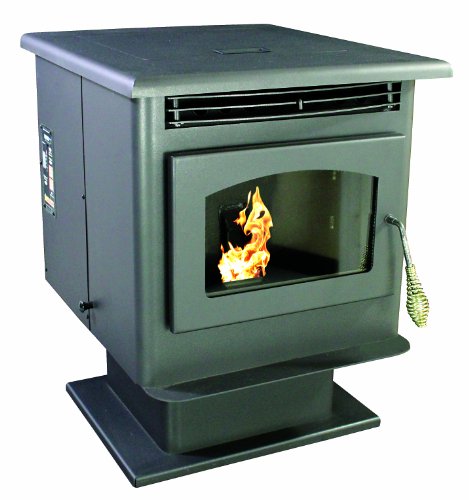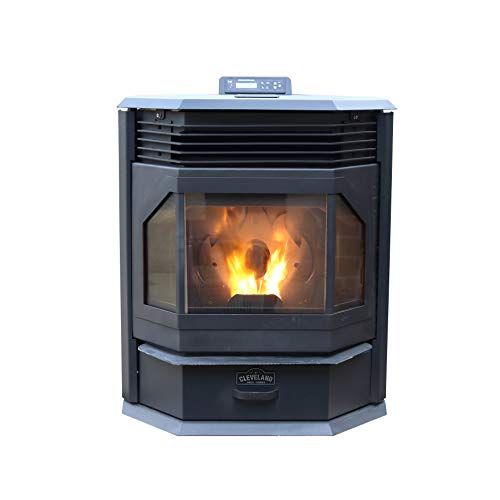You'll Never Guess This Pellet Stove Furnace's Secrets
페이지 정보

본문
 Pellet Stove Furnace
Pellet Stove FurnacePellet stoves can be purchased as freestanding units or fireplace inserts that can give your home the appearance of an old-fashioned fireplace that burns wood. They can be purchased as freestanding units or fireplace inserts that give your home the appearance of a traditional wood-burning fireplace.
The auger moves pellets from the hopper into the combustion chamber which is where they burn and produce heat. Sensors monitor the flame and can adjust the rate of operation to maintain a desired temperature in the room.
1. Energy Efficiency
Pellet stoves burn a sustainable, non-toxic fuel made of compressed sawdust wood chips, bark and other materials that are normally dumped in landfills, but can be repurposed into a clean and efficient source of heating. As a result, they can help homeowners reduce their energy usage and decrease greenhouse gas emissions. Many owners of pellet stoves for sale stoves have reported that they've recouped their initial investment in just several years with lower heating costs.
Pellets are stronger and more compressed than natural wood, making them more efficient to burn. They also produce less creosote than traditional wood-burning fireplaces. They are also packed in plastic bags that seal out moisture and need less frequent cleaning.
Pellet stoves, like other heating systems need to be sized and vented properly. A trained technician will be able to evaluate your venting needs and space requirements to achieve the most efficient results.
In the process of installation, the hearth is constructed to fit the space and the vent is fitted through a pre-cut hole in the siding of your home. The vent is then run out a side wall or through the roof, depending on your preference and local regulations.
After the hearth and vent are complete, the pellet stove can be connected and switched on. Certain manufacturers provide a remote control that makes starting and maintaining the fire simple and others include sensors that monitor airflow, combustion flue temperature, pressure. If the system is able to determine that it requires more pellets or less, it sends a signal to the auger that it needs to accelerate or slow down in line with the needs.
All stoves have a hopper for storage that holds from 35 to 130 pounds of pellets until required. Hopper capacities affect how often the stove has refills and larger hoppers allow longer intervals between refills. A grille draws air from the room, then passes it over the heat exchanger, and then blows heated air through the living space via convection. A auger, grate or any other device distributes the pellets and a pan beneath is used to collect any unburned ones as well as the combustion leftovers.
Although pellet stoves are more efficient than wood-burning models, they're not as efficient as natural gas furnaces or electric heaters. Electric components that drive motorized components of stoves require a power source. This could be an issue in the event of a power failure, although backup systems like batteries and generators are available.
2. Low Maintenance
pellet stoves for sale used stoves can be extremely efficient, but they require some attention to run correctly. Cleaning regularly your stove's exhaust vents and the stove will help prevent the build-up of harmful creosote that can cause an explosion, fire, or damage to your stove or home.
A pellet stove burns natural wood pellets or other materials (like nutshells, corn kernels or small pieces of wood scraps). The pellets are introduced into the combustion chamber by an auger powered with electricity. The thermostat you set controls the speed of pellets being fed to the burner. This allows the fire to remain roaring or modulate lower and even stop according to the temperature you set. When the fire is gone the ash is then thrown into an empty ash tray underneath the burner, which can be easily removed and then disposed of.
Pellets are produced from byproducts of lumber processing which could otherwise be thrown away. They are a renewable source and emit less particulates than traditional wood-burning appliances making pellet stoves a cleaner heat source. The amount of carcinogens, carbon monoxide and other harmful chemicals released from pellet stoves is much lower than the newer EPA certified wood stoves.
Because of the low emissions the stoves do not need to be vented through chimneys like traditional wood stoves but they must be properly vented through a wall or other external structure. Pellet stoves are equipped with flue ports at the rear or top of the appliance. They are connected to a ventpipe which extends outside the home.
A pellet stove has one drawback it requires you to purchase or store enough fuel pellets to last for the entire winter time. On average, homeowners of a pellet stove consume three tons of pellets throughout the course of the winter season at a cost of $200 per ton. The expenses can add up, but they are cheaper than purchasing firewood and then hauling it away for a wood-burning stove or fireplace. It is recommended to purchase enough pellets so that your stove can run through the winter's coldest months. Additionally, you will must have a space to keep the pellets (preferably dry and cool).
3. Reduced Carbon Footprint
Pellet stoves use renewable biomass fuels to generate heat, reducing dependence on fossil fuels that are depleted. This reduces carbon footprints as well as diversifying energy sources for homes.
The emissions from pellet stoves are much lower than woodstoves, even newer EPA-certified ones. The emissions from pellet stoves are much lower than ones from gas furnaces. Pellets are made of compressed sawdust, bark, and other lumber waste. They can also be composed of various other substances like soybeans, corn and nutshells, cherry pits and agricultural waste. When they are burned, they release less particulates (leading to respiratory problems and allergies), carcinogens, carbon monoxide and nitrous oxides.
The feed system is the main difference between pellet stoves and wood stove. outdoor pellet stove stoves have hoppers to store the pellets. When the thermostat or sensors indicate the room needs heating, the auger is turned. The pellets are then put into the combustion chamber and burn to generate heat. The combustion chamber's air is pumped through a heat exchanger which transmits heat to the blower. This process results in low emissions and no creosote accumulation.
After the hopper has been emptied, the ash is removed using a cyclone and it is then deposited into an ash container. The stove also features a fan to circulate the warm, clean air into the living room. Most pellet stoves are designed to operate with minimal maintenance and come with a large view space for you and your family members to take in the flames.
The quality of pellets is the primary factor that influences the emissions of discount pellet stoves stoves. The poor quality pellets will result in more emissions. When selecting your pellets ensure they are certified as meeting certain standards and do not contain other ingredients, such as petroleum-based or urea-based substances. Also, look for a manufacturer that offers a guarantee and will repair or replace any part in case of a problem. Certain states provide homeowners with a tax credit when they choose to go even greener. This is a great opportunity to to offset the initial cost of this kind of stove and make it more affordable to set up.
4. Reduced Noise
 Pellet stoves produce a minimal amount of smoke or exhaust when compared to wood-burning fireplaces. A fan is employed to spread heat more evenly throughout the room. This is the reason why pellet stoves require less maintenance than wood stoves. While wood stoves require frequent cleaning of chemicals and particulates to prevent deterioration, pellet stoves can be cleaned with the use of a vacuum cleaner made of metal.
Pellet stoves produce a minimal amount of smoke or exhaust when compared to wood-burning fireplaces. A fan is employed to spread heat more evenly throughout the room. This is the reason why pellet stoves require less maintenance than wood stoves. While wood stoves require frequent cleaning of chemicals and particulates to prevent deterioration, pellet stoves can be cleaned with the use of a vacuum cleaner made of metal.Many manufacturers have made a conscious effort to create stoves that will be simple to install, operate and maintain. They also offer their stoves in a wide range of styles that can be matched to your home's decor. Certain models come with WIFI, a remote control and thermostat that can be programmed.
Most pellet stoves come with an enormous fuel hopper which can contain between 35 and 130 pounds of pellets. The pellets are then fed to the combustion chamber through an auger. The speed at which pellets are delivered to the burner determines how hot the flame is as well as the amount of heat it produces. The hopper may be filled with hardwood pellets composed of dense wood species such as oak and hickory or softwood pellets. Many stoves can even use alternative biomass pellets, like those made from switchgrass or corn, which can be an environmentally friendly option.
Pellet stoves emit less smoke and require less maintenance since they use cleaner fuel than wood-burning fireplaces. They also do not require a chimney, making them a better choice for new construction or retrofits.
Pellet stoves don't require regular cleaning of creosote or other chemicals similar to wood stoves. They only need periodic inspections to ensure their proper operation and maintenance. This may include regular cleaning and inspection of the ash or "clinker" as well as the fans and motors, depending on the model. Your appliance dealer will be able to provide the proper procedures for your particular brand and model. He can also assist you to find the correct fuel for your stove, and give details on storage and safety.
- 이전글The Best Pragmatic Tricks To Rewrite Your Life 24.10.23
- 다음글A Productive Rant About Tiny Pellet Stove 24.10.23
댓글목록
등록된 댓글이 없습니다.
